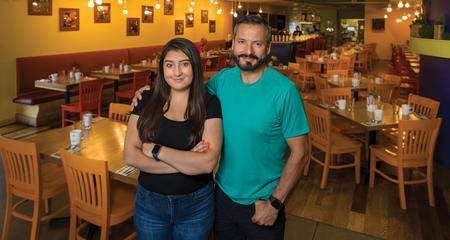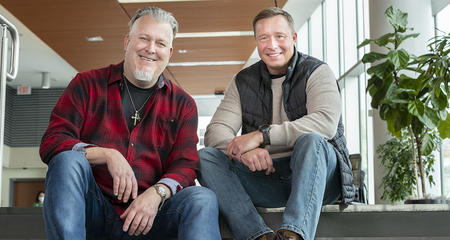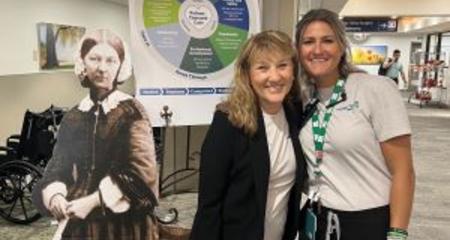Reason and free inquiry are the only effectual agents against error.
-Thomas Jefferson
During medical school, residency, and fellowship, I learned from several brilliant surgeons. When I finally finished training, I was armed with the latest research and state-of-the-art techniques. I returned to MCW to offer patients the same care they would have been offered at any cancer center in the country.
I can’t begin to list all the things that have changed since 1987. Some of the operations I learned are obsolete. Some things we did were just plain wrong. New approaches, technologies, and medications common now were unimagined then. Each new bit of evidence has altered our recommendations and approaches.
For example:
When I was in training, tonsil cancer was rare, occurring only in people who were heavy smokers and drinkers. It was a devastating diagnosis because the surgical procedure – a “commando procedure” or “composite resection” – removed a section of lower jaw, distorting the patient’s face and leaving him or her unable to eat or speak normally. Radiation techniques of the day left the mouth and throat bone dry. Some people never went out in public again.
One day in the late 1990s, one of our residents noted, “Isn’t it strange that we have treated a few tonsil cancer patients who never smoked? Have you seen that before?”
I thought he might be onto something. “I agree that is unusual. We should write it up.”
Sad to say, we never did. The resident graduated and moved on. My research went in other directions.
But – interestingly – what my resident had noticed in the non-smoking tonsil cancer patients was the tip of an iceberg. It was our earliest experience with HPV-related oropharyngeal cancer. We did not know at the time why things had changed, only that they had.
Fortunately, others noticed the change, as well. As the frequency of cases accelerated, scientists determined that the same HPV strains that caused all cervical cancer in women also caused oropharyngeal cancers, mostly in men. Today, we don’t treat tonsil cancer patients with the disfiguring surgery anymore. The treatments uncovered by research are working well and investigations into the cancer biology and best options continues. Research changed everything.
Another example:
When I started, cancers of the voice box were often treated with a total laryngectomy until a large research trial funded by the Department of Veterans Affairs showed chemotherapy followed by radiation was just as effective as surgery. Subsequent research funded by the National Cancer Institute (NCI) showed that chemotherapy and radiation administered at the same time were even more effective. Non-surgical and voice-preserving treatments were safe and effective. The number of laryngectomies dropped dramatically. Research changed everything.
Science has been under attack lately. I am a proponent of government-funded research because it shapes our patient care. Many clinical trials are funded through the National Institutes of Health (NIH). Basic scientists at MCW rely on highly competitive NIH and other government funding. I was fortunate to receive a NIH grant early in my career and learned much about cancer survivorship in the course of running the project.
I try to do my part to support science. I provide peer review for medical journals by volunteering to read and critique research papers before they are accepted for publication. In the clinic and the OR, I treat patients using the highest quality available evidence. In my reading, I do my best to keep up with the advances in my specialty. As a citizen, I contact my elected representatives.
My interest in Global Health has allowed me to see how government-funded science relieves suffering overseas while it keeps us safe at home. On our trips to Africa, we have seen projects supported by United States Agency for International Development (USAID), the US Department of State, the NIH, and the Centers for Disease Control and Prevention (CDC). Research supported by the NIH’s smallest unit, the Fogerty International Center, keeps all of us safe from pandemics and improves the health of people everywhere. Diseases know no borders. Paraphrasing a statement I heard recently, “Research will help stop the next pandemic in West Africa before it reaches West Allis.”
My biggest fear when I started was that I would not be able to keep up with our ever-evolving field. What changes will my residents see before their careers end? I worry that science-skeptical leaders will slash funding, thereby slowing the pace of discovery, stifling inquiry, and discouraging our best and brightest students from pursuing the difficult work of research.
I can’t honestly say that any of the papers I have written over my career has changed medicine in a dramatic way but I learned much in the process of participating in projects and preparing manuscripts. We owe it to the next generation of clinicians and scientists to support them by providing the funding and tools they will need to drive scientific discovery and make the world a better and healthier place for our children and grandchildren.



